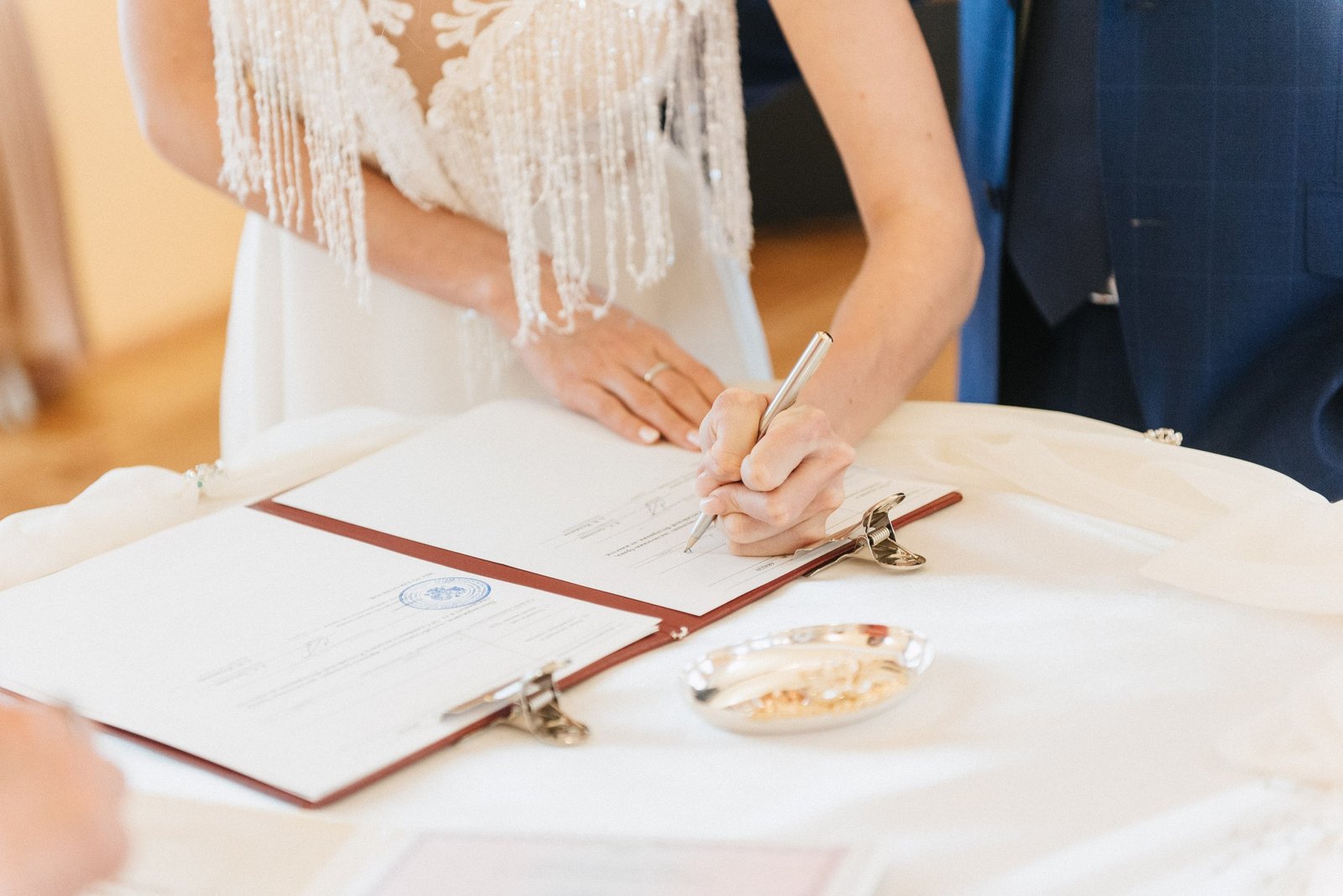
- +92302-6644789
- info@pakistanmarriage.com,pk
- Mon - Fri: 9:00 - 18:30
Need A Free Consultation? Make An Appointment
Need A Free Consultation? Make An Appointment
There are many different aspects to Family Law, and it can be a complex and sensitive area of the law. If you are dealing with Family Law issues, it is important to have a lawyer who is experienced in this area and who can offer you the support and advice you need. Family Law can cover a wide range of issues, including divorce, child custody, adoption, and more. If you are dealing with any of these issues, you will need to make sure that you have a lawyer who is knowledgeable about the law and who can help you navigate through the process.

In Pakistan, Family Law is a branch of personal law that deals with the legal issues related to families. This includes marriage, divorce, child custody, and inheritance. Family Lawyers in Pakistan help their clients navigate these complex legal issues.
Pakistani Family Law is based on the Islamic legal system. Family Lawyers in Pakistan help their clients resolve legal issues related to families. They can help with marriages, divorces, child custody, and inheritance. Family Lawyers can also provide other legal services, such as drafting wills and trusts.
Nikah is an Arabic word that means marriage. It is a contract between a man and woman to live together as husba
A Family Lawyer is someone who specializes in handling legal matters related to families. This can include things like divorce, child custody, and adoption. Family Lawyers can also help with things like domestic violence and spousal support. If you are dealing with any legal issue that involves your family, it is a good idea to consult with a Family Lawyer to see what your options are.
There are a number of different things that Family Lawyers in Pakistan can do. They can help couples to resolve their differences and come to an agreement on various issues related to their marriage. This includes helping them to draft a prenuptial agreement or divorce settlement, or to negotiate child custody and visitation arrangements.
Family Lawyers can also help individuals who have been victims of domestic violence. They can provide legal representation and advocacy services, as well as offer emotional support. In some cases, they may even be able to help the victim obtain a restraining order against the abuser.
In addition to assisting individuals, Family Lawyers in Pakistan also work with families as a whole. They can help families to resolve conflicts between members, or deal with difficult situations such as the death of a family member. They can also provide advice on estate planning and succession issues.
nd and wife. In Islam, marriage is a legally binding contract with many rights and responsibilities for both husband and wife. Marriage is also a way to please Allah SWT and gain His blessings.
Some of the benefits of Nikah in Islam are:
1) It helps in maintaining chastity and fidelity between husband and wife.
2) Nikah brings peace and harmony to family life.
3) It provides financial security for the wife and children.
4) Nikah protects the rights of women and children.
5) It gives legal status to the relationship between husband and wife.
6) Nikah is a Sunnah of the Prophet Muhammad SAWS (peace be upon him).

Muslim Family Law is a branch of Muslim personal law that governs the legal rights and obligations of Muslim families. It is based on the Quran and the Hadith and is interpreted by Islamic scholars.
Muslim family law covers a wide range of issues, including marriage, divorce, child custody, inheritance, and polygamy. In Pakistan, Muslim family law is codified in the Muslim Family Laws Ordinance 1961.
The Muslim Family Laws Ordinance 1961 is a set of statutes governing the personal affairs of Muslims in Pakistan. It is based on the Islamic concept of family law and is designed to protect the rights of Muslim families and individuals. The ordinance covers a wide range of topics, including marriage, divorce, child custody, inheritance, and property rights. It also establishes procedures for resolving disputes between spouses and other family members.
The ordinance was enacted by the Pakistani parliament in 1961 and has been amended several times since then. It is widely seen as one of the most progressive pieces of legislation in Pakistan and has been praised by human rights activists for its protection of women’s rights. However, some conservative Muslims have criticized the ordinance for allegedly contradicting Islamic law.
The ordinance sets out the requirements for a valid marriage contract, as well as the grounds on which a marriage can be dissolved. It also regulates matters such as child custody and maintenance, and inheritance.
Polygamy is permitted under Muslim family law, but it is restricted to four wives at any one time. A man must treat all his wives fairly and equally and must provide them with separate residences.
Divorce is allowed in Islam, but it is discouraged. The Quran lays down certain rules for divorce, such as arbitration and mediation by relatives, before resorting to divorce.
Under Pakistani law, a divorced woman must wait for three menstrual cycles before she can remarry. This waiting period is known as iddah.
Pakistan is the Islamic Republic and Family Law in Pakistan is based on Islam. The main sources of Family Law in Pakistan are the Quran and the Sunnah. The Constitution of Pakistan also plays a role in Family Law.
Pakistan has a dual legal system, with both secular courts and sharia courts.
Sharia courts have jurisdiction over Family Law matters. There are different types of sharia courts, including the Council of Islamic Ideology, which advises the government on religious matters, and the Federal Shariat Court, which has the power to strike down laws that it considers to be un-Islamic.
There are many different laws that govern families in Pakistan. These include the Muslim Family Laws Ordinance, of 1961, the Dissolution of Muslim Marriages Act, of 1939, the Muslim Marriage Act, of 1965, and the Muslim Personal Law (Shariat) Application Act, of 1937.

In Pakistan, family law is a branch of personal law that deals with the legal issues related to families. This includes
In Pakistan, Marriage is a legal contract between a man and a woman. The minimum age for marriage is 18 years for men and 16 years for women. A marriage contract is signed by both the bride and groom in the presence of witnesses and then registered with the local union council.
Under Pakistani law, there are three types of marriages:
This type of marriage is governed by the Hanafi school of thought and follows the customary rules laid down by this school. The minimum age for Sunni Muslim marriage is 18 years for men and 16 years for women. A guardian (wali) must give consent to the marriage on behalf of the bride. The wali can be her father, grandfather, brother, or any other male relative who has been appointed as her guardian by her father. If the bride is divorced or widowed, her guardian must give his consent to her remarriage.
This type of marriage is governed by the Jafari school of thought and follows the customary rules laid down by this school. The minimum age for Shia Muslim marriage is 18 years for men and 16 years for women. A guardian (wali) must give consent to the marriage on behalf of the bride but unlike Sunni Muslims, a woman can appoint her own guardian in writing if she does not have a male relative who can act as her guardian.
Christian marriages in Pakistan are governed by Christian Personal Laws
In Pakistan, divorce is regulated by Family Law. The main legislation governing divorce is the Dissolution of Muslim Marriages Act of 1939. Under this Act, a Muslim husband can unilaterally declare that he divorces his wife by pronouncing talaq. Once talaq is pronounced, the marriage is dissolved and the wife becomes haram (unlawful) for the husband. The wife can also initiate divorce proceedings by approaching a court and proving that her husband has divorced her or has failed to fulfill his marital obligations.
There are various grounds on which a divorce can be granted under Pakistani Family Law. These include adultery, cruelty, desertion, non-maintenance of wife, conversion to another religion, mental illness, and impotency. In addition, there is a provision for khula, whereby a woman can obtain a divorce from her husband without his consent if she is willing to forego all her financial rights.
Once the divorce decree is granted by the court, both parties are free to remarry. However, under Islamic law, a woman who has been divorced must observe iddah (a waiting period of four months during which she cannot marry anyone else) before she can remarry her former husband.
Khula is a divorce pronounced by the wife in which she forfeits all her financial rights vested in her under the marriage contract or customarily. The husband may also waive his right to unilaterally divorce his wife, granting her the same power. Khula has been a controversial issue in Pakistan, with many scholars and religious leaders arguing that it violates Islamic law. However, there is a significant precedent for Khula in Islamic jurisprudence, and it is increasingly being used as a tool for women to gain divorce in Pakistan.
When the Khula is granted, then the marriage will be dissolved and the wife will be free to remarry. The husband will also lose any financial rights he had under the marriage contract or customarily. In some cases, the husband may be required to pay alimony to his former wife. Khula can be an empowering tool for women who are seeking to escape abusive or unhappy marriages. It can also be used as a way to negotiate favorable terms in
When it comes to child custody, Pakistan follows the doctrine of “normalcy.” This means that the best interests of the child are always considered when making a decision about custody. In most cases, the mother is given primary custody of the child, but there are some situations where the father may be given custody. The court will always consider what is in the best interests of the child when making a decision about custody.
If you are going through a divorce or separation and you have children, you will need to figure out child custody arrangements. Child custody can be one of the most difficult issues to deal with during a divorce or separation. You will need to think about what is best for your children and what will work best for your family.
There are two types of child custody: physical custody and legal custody.
Physical custody refers to who the child lives with. In most cases of divorce, one parent has primary physical custody meaning that the child lives with them most or all of the time. The other parent generally has visitation rights and may have regular parenting time.
In joint physical custody, both parents have an equal or nearly equal amount of time with the child.
Legal custody refers to who makes decisions about the child’s welfare, including education and medical care. A parent can have sole physical and legal custody, or joint physical and legal custody.
If you are going through a divorce or separation, it is important to speak with a lawyer about your options for child custody arrangements. You want to make sure that your children’s best interests are taken into account and that you make arrangements that will work for your family.

There is many ways to adopt a child in Pakistan. The most common is through Family Law. Family Law is a branch of civil law that deals with the legal issues concerning families. This includes marriages, divorces, adoption, child custody, and domestic violence.
Adoption is governed by the Family Law Ordinance 2001. Under this ordinance, any Pakistani citizen can adopt a child. The adoptive parent must be at least 21 years old and must not have any biological children of their own. The adoptive parents must also be Muslim.
The process of adoption in Pakistan starts with the consent of the birth parents. If the birth parents are deceased or cannot be found, then the consent of the guardian must be obtained. Once consent is obtained, an application must be made to the court for permission to adopt the child.
The court will appoint a welfare officer to investigate the suitability of the adoptive parents. The welfare officer will submit a report to the court which will decide whether or not to grant permission for the adoption.
If permission is granted, then an Adoption Certificate will be issued. This certificate is required for registration of the child in their new home and for obtaining a new birth certificate in their name.
Property disputes under Family Law can be complex and emotionally charged. A Family Lawyer can help you understand the process and ensure that your rights are protected.
The first step in resolving a property dispute is to determine what property is subject to division. This includes all assets and debts acquired during the marriage, as well as any inherited or gifted property. Once this has been determined, the next step is to value the property. This can be done through appraisals, financial records, or other means.
Once the value of the property has been determined, the next step is to negotiate a settlement. This can be done through mediation, negotiation, or arbitration. If a settlement cannot be reached, the case will go to trial. A Family Lawyer can help you navigate these steps and protect your interests.
When it comes to family law, domestic violence is an important issue. It can be defined as any type of physical, sexual, emotional, or financial abuse that takes place within a family or intimate relationship. Unfortunately, domestic violence is all too common in Pakistan.
There are a number of laws that deal with domestic violence in Pakistan. The most important of these is the Domestic Violence Act 2010. This Act provides protection for victims of domestic violence and gives them the right to file a case in court. It also sets out the punishments that can be given to perpetrators of domestic violence.
If you are in need of legal assistance pertaining to any issue under Family Law, our firm is here to help. We have experience handling all types of cases under this area of law, including divorce, child custody, alimony, and more. Regardless of the specifics of your situation, we will work tirelessly to ensure that your rights are protected and that you receive the best possible outcome. Contact us today to schedule a consultation with one of our experienced Family Law attorneys.
When it comes to Family Law, our family lawyers have the experience and compassion to guide you through what can often be a difficult process. Our CEO Mohsin Ali Shah is serving in the field of Family law since 1985. We understand that no two families are the same, and we will work with you to find the best solution for your unique situation.
We can help with a variety of Family Law issues, including divorce, child custody, and visitation rights. We also have experience handling domestic violence cases and can help you get the protection you need.
If you are facing a Family Law issue, contact our office today to schedule a consultation with one of our experienced attorneys.




+92316-6644789
+92302-6644789
+92333-2316871
A-1937/B, Near Shop 399 Garment Store, Metroville III Colony, Scheme 33, Gulzar e Hijri, Maulana Yousuf Ludhianwi Road, Karachi, Pakistan
M-51, Muneer Mobile Mall, Block 17, Near Perfume Chowk & Jauhar Chowrangi, Gulistan-e-Jauhar.
Pakistan Legal Advisors, Office No. 5, 2nd Floor, Laraib Plaza, Karachi Company, G-9 Markaz
Qanoon Online, 1st Floor, Al-Mairaj Arcade, Near Surayya Azeem Trust Hospital, Chauburji Chowk.
Justice Tariq Block, District Courts, Multan
Third Floor, Tanveer Randhawa Building, District Courts, Faisalabad
Get in touch with a lawyer or attorney dedicated to helping you achieve your goals, or send us an email. You will receive a prompt response from us. Be assured that your matter will remain a top-secret matter for us.
WhatsApp us